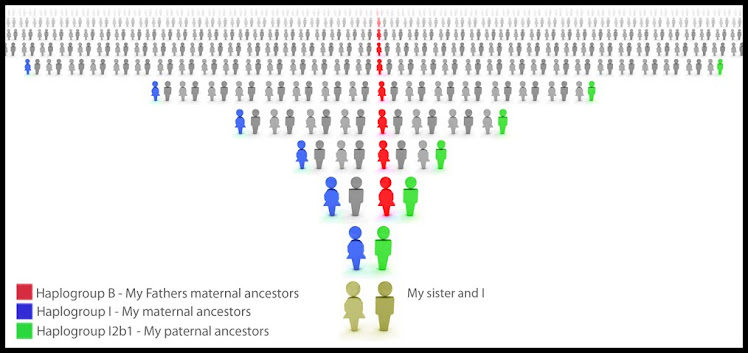Throughout our careers in various fields of work, we each gain level of expertise in the specific segments of business that we are relied upon. As a genealogist, I have found tremendous value in the unusual overlap of my fields and segments of work since my honorable discharge from the Air Force in 2000:
2000 - 2001: Family Services Counselor with Service Corporation International
2001 - 2003: Cemetery Office Manager with Service Corporation International
2003 - 2005: Van Driver with Docuvault records management company
2005 - 2006: Army Casualty Office Contract Lead with Chugach McKinley Incorporated
2006 - 2008: Branch Supervisor with Docuvault
2008 - 2009: Operations Supervisor with Iron Mountain records management company
2010 - 2010: Office Clerk with the U.S. Census Bureau
2011 - Now: Archives Aid with the U.S. National Archives and Records Administration
Many people viewing such a work history on a resume' would simply be hesitant, afraid, or perhaps even intimidated by such a broad array of titles and mixed organizations. However, each position worked in has one factor in common. Each involved working with information and records on some level or another. I was writing sales agreements for nearly a year with SCI and then reviewing and approving or rejecting over a million dollars worth of the same business contracts over the next two years. The following two years I carried tens of thousands of boxes full of records in both hard copy and digital format to and from clients all over the Colorado Springs and surrounding area. The next year, I found myself supervising not only a staff of three casualty contractors working with the reporting and tracking of combat and non combat related deaths and the entire gamut of GWOT injuries, but also benefits applications for survivors and the often completely unprepared officers selected to perform line of duty investigations on their comrades for determinng similar benefit eligibility. I gained a new found respect for the value of a current DD Form 93 that hadn't been realized while I myself was in service of Uncle Sam. My return to Docuvault to supervise opened up new perspectives on physical and digital records management as I strengthened the solid founded relationships with many key client organization contacts. When Iron Mountain purchased Docuvault, the job changed little other than the tools and processes of a new international parent company. The next year, the 2010 Decennial Census reminded me of the importance of details in records as hundreds of thousands of enumeration questionnaires passed through our hands with record breaking efficiency in only a few months. A new job at NARA seems only natural with even more remarkable learning of how our nation handles all federal agencies' hardcopy and digital records.
So what is this experts oppinion on hardcopy versus digital records? I deeply respect the value of the traditional hardcopy document with its feel and look and smell of decades or even sometimes centuries of authenticity just as truthfully as I hold my ancestors hardcopy files organized by individual in a few containers that would surely be at the tope of my list of things to grab in case of a fire.
I also truly understand and appreciate the astounding recent capabilites and those yet to come from the digitally preserved documents scanned and preserved for people to be able to view perhaps thousands of years from now. It is nothing less than completely remarkable that we can now store dozens of Gigabites on a thumb/flash drive USB that fits on your keyring or even in your wallet and absurdly phenomenal that you can hold a device with a few terrabytes in the palm of your hand or pocket.

 The honest answer I have for which is better or more necessary is that for now they certainly both are equally needed. One day I envision when the documents we type up from templates and save will not ever go to a printer, but only be saved to a computer drive with an ultra secure backup copy elsewhere. All documents will be e-mailed or skyped or whatever the next technology affords. One day we will all go digital, but for now enjoy the ancient seeming hard copy documents that may one day end up on Antiques Roadshow or in museums around the world. We are bound and determined to digitize all the information of our world and existence. It is an unstoppable wave we must continue to ride.
The honest answer I have for which is better or more necessary is that for now they certainly both are equally needed. One day I envision when the documents we type up from templates and save will not ever go to a printer, but only be saved to a computer drive with an ultra secure backup copy elsewhere. All documents will be e-mailed or skyped or whatever the next technology affords. One day we will all go digital, but for now enjoy the ancient seeming hard copy documents that may one day end up on Antiques Roadshow or in museums around the world. We are bound and determined to digitize all the information of our world and existence. It is an unstoppable wave we must continue to ride.







